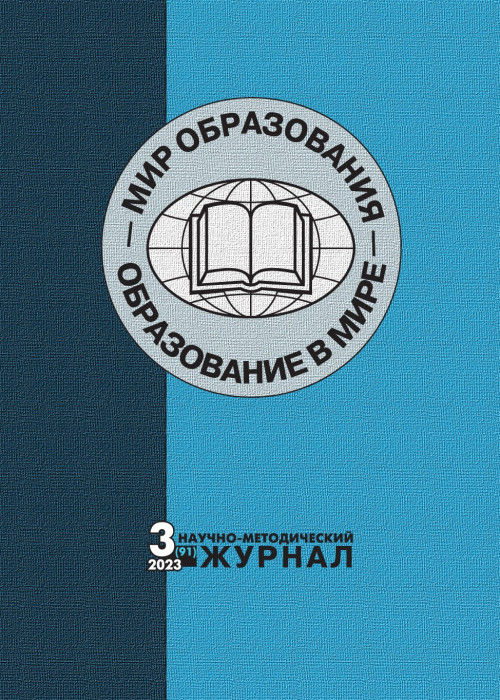Integration of Classical and Innovative as a Factor in the Development of Domestic Didactic Theories
Annotation
In the article, the editor-in-chief draws the attention of researchers and readers to the importance of observing the principle of continuity and consistency in the process of developing and implementing innovations in pedagogical theory and practice. The fact is that pedagogy itself as a science, or more precisely the art of education, does not imply sharp changes in polarities and vectors of orientation in training and education of a person. As you know, the basis of training and education is formed by established pedagogical theories, concepts, and provisions. It is important that innovations in pedagogy are not contradictory in nature and do not imply a sharp change in their focus. Such changes usually lead to chaos in a person’s consciousness and negatively affect both the results of learning and, especially, education. In order to preserve progressive development in pedagogical science and practice, the author proposes a consideration of classical and innovative teaching theories in general pedagogy and higher education pedagogy, reveals the main trends and patterns of formation and development of basic didactic theories and concepts in domestic pedagogy. Features of implementation of classical theories in modern universities are shown: the associative-reflexive theory of learning and the theory of gradual formation of mental actions, as well as the innovative theory of problem-based and digital learning. Along with this, an effective integration of specific didactic concepts: pedocentric, Bell Lancaster, Mannheim, brigade-laboratory, Dalton plan, Winnetka plan into modern programmed education is substantiated.
Keywords
| Type | Article |
| Information | WORLD OF EDUCATION — EDUCATION AROUND THE WORLD № 03/2023 |
| Pages | 9-18 |
| UDK | 37.0 |
| DOI | 10.51944/20738536_2023_3_9 |
